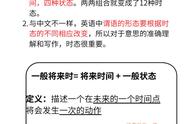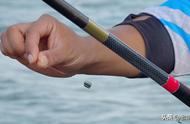(一)一般将来时的用法:
一般将来时表示将来某一时刻的动作或状态,或将来某一段时间内经常发生的动作或状态。
(二)标志:
常用于一般将去来时的时间状语有: tomorrow( 明天)、The day after tomorrow(后天)、next week/month/year/…(下周/下个月/明年/……)in the futurel将来)、in an hour(一小时后)、soon(不久)等。
(三)一般将来时的基本句型结构:1.will/shall 动词原形
表示将来某个时间将要发生的动作或存在的状态。will 用于各种人称;shall只用于第一人称。
2.be going to 动词原形
be going to 相当于一个助动词(其中be有人称和数的变化),与它后面的动词原形一起构成谓语。
肯定句:(1)I/We shall/will go.我/我们将去。(2)You/He/She/They will go.你/他/她/他们将去。
(3)He is going to buy a bike.他打算买一辆自行车。
否定句:(1)I/We shall/will not go.我/我们将不去。(2)You/He/She/They will not go.你/他/她/他们将不去。
(3) She is not going to go to school tomorrow.她明天将不去学校。
疑问句:(1)Shall I/we go?我/我们将去吗?(2)Will you/he/she/they go?你/他/她/他们将去吗?
(3) Are you going to come to my home this weekend?这个周末你将来我家吗?
简略回答:(肯)Yes,主语+shall/will. (否)No,主语+shall/will not.
(肯)Yes,主语+am/is/are.
(否)No,主语 am/is/are not.
特殊疑问句:一般将来时的特殊疑问句是将疑问词放在句首,后接一般疑问句。
What will you do tomorrow?你明天打算做什么?
Where are you going to visit?你明天打算去哪儿参观?














